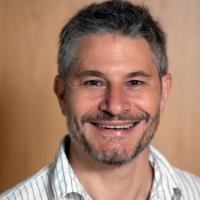Scientists Explore the Global One Health Goals to Stop and Reverse the Loss of Brain Capital
A team of neuroscientists, led by GBHI faculty member and Atlantic Fellow Agustín Ibáñez, have studied the impact of escalating environmental and social challenges on both our brains and the sustainability of the planet.

The suggested research framework advocates for an approach integrating human, animal, and environmental health strategies to tackle these complex challenges holistically. A perspective paper from the group, published in the journal Neuron, explores the ways in which the ‘brain economy’ can contribute to the objectives of the One Health framework, a long-established United Nations priority that seeks to harmonize and improve the health of humans, animals, and the environment.
'One Health' is a World Health Organization (WHO) integrated, unifying approach to balance and optimize the health of people, animals and the environment.
Brain health is a critical aspect of human well-being, affecting cognitive abilities, socioemotional stability, and overall quality of life (WHO, 2022). However, the growing prevalence of brain disorders is taking a steep economic toll. Every year, dementia costs the global economy more than $1.3 trillion, a value that is set to increase to $2.8 trillion by 2030 (WHO, 2023).
The brain economy is a global goal to stop and reverse the loss of brain capital, an asset integrating brain health and brain skills. This concept advocates for a transformative societal change that benefits humans, the economy, and nature. The brain economy would allow us to create a stronger, more resilient future.
Led by Agustin Ibáñez, faculty member and Atlantic Fellow for Equity in Brain Health at the Global Brain Health Institute (GBHI) at Trinity College and Director of the Latin American Brain Health Institute (BrainLat) at University Adolfo, Ibáñez, Chile and an international team of experts from academia, non-governmental organizations, and the private sector, this paper proposed a framework that brings a roadmap on the physical and social exposomes—encompassing everything from air and water pollution to socioeconomic disparities—and their significant impact on brain health.
Agustin Ibáñez, said: "The findings reveal that pollutants like fine particulate matter, heavy metals, and social factors such as stress and inequality have profound implications for brain health across the lifespan. For instance, exposure to air pollution has been linked to neurodevelopmental delays in children and an increased risk of neurodegenerative diseases in adults."
Ibáñez and his team propose a comprehensive roadmap for future research, policy development, and technological innovation to enhance health resilience against environmental and social hazards. Key recommendations include advancing biomonitoring technologies, integrating exposome data into public health strategies, and fostering global cooperation to effectively implement environmental and health safeguards.
Burcin Ikiz, a co-author and the Founder and Chair of the Neuro Climate Working Group, said: “We recently launched the Neuro Climate Working Group as a global multi-disciplinary team of neuroscientists, neurologists, psychologists, epidemiologists, and public policy experts dedicated to understanding and addressing the impacts of climate change on brain health. Through interdisciplinary collaboration, innovative research, and informed advocacy, we aim to integrate neuroscience and environmental science to enhance public health outcomes globally.”
The team will present their paper on September 18th, 2024 at the United Nations General Assembly Science Summit on this topic.
“The paper provides us with a strong science and technology policy platform leading into our United Nations General Assembly Science Summit, noted Harris Eyre, lead of the Brain Capital Alliance and senior fellow with Rice University’s Baker Institute for Public Policy.
The perspective paper: ‘Neuroecological links of the exposome and One Health,’ published in Neuron, can be viewed at the link below:
Authors

Agustín Ibáñez, PhD
Neuroscientist

Harris Eyre
Neuroscientist

Mohamed Salama, MBBCH, DTQM, PhD
Neuroscientist

